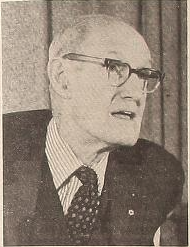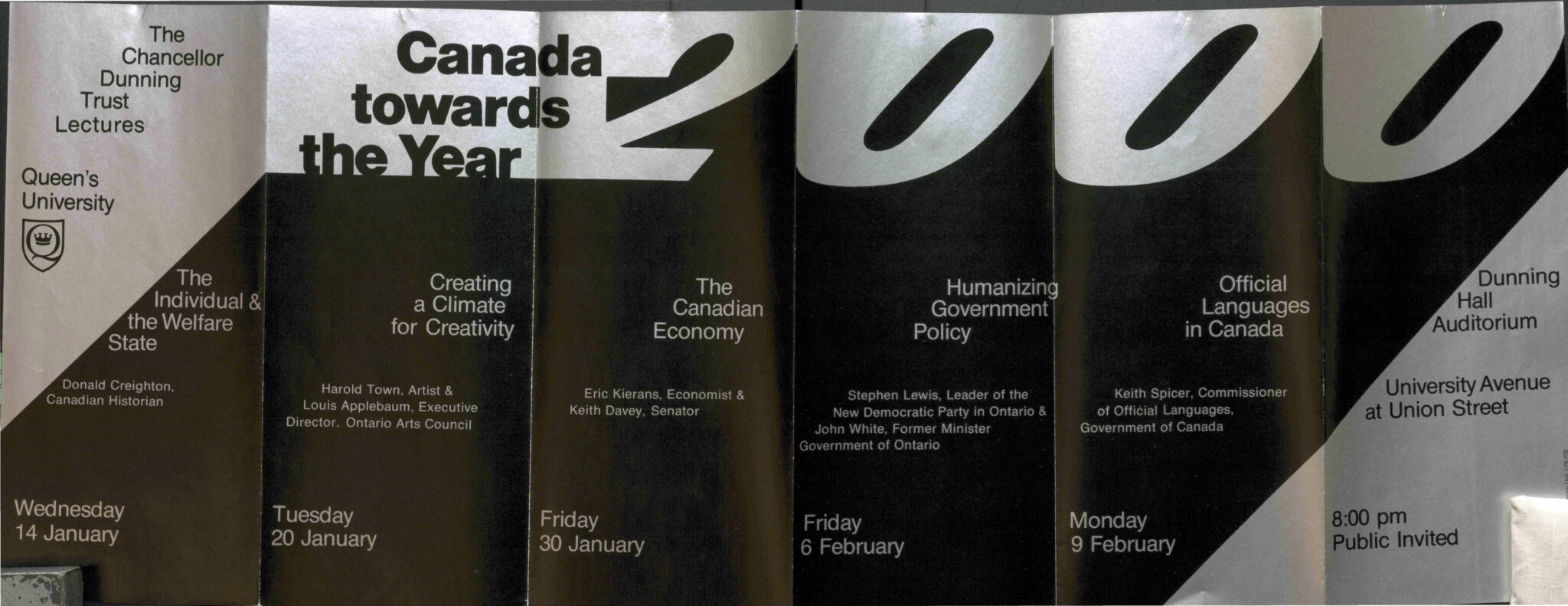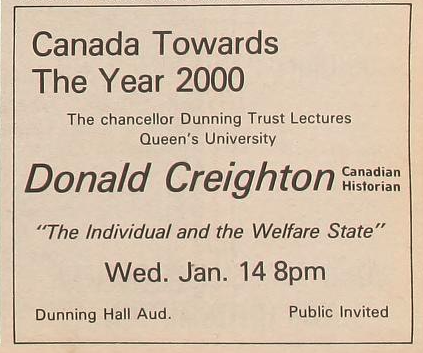
Donald Creighton was a historian and author. After completing graduate work at the University of Oxford, he returned to Canada to teach history at the University of Toronto in 1927, where he remained for his entire career. He was chair of the history department there from 1955-59, and in 1965 became the Sir John A. Macdonald Professor of History. His book The Commercial Empire of the St. Lawrence, 1760-1850 established his reputation as a significant historian of Canada. He later wrote Dominion of the North: A History of Canada and a two-volume biography of John A. Macdonald. Both volumes of this series won the Governor General’s medal for academic non-fiction. In 1959, he was appointed to the British Monckton Commission to review the constitution of the Federation of Rhodesia and Nyasaland in the wake of decolonization. He retired in 1971, but continued his public advocacy and public history work. He believed history was a literary discipline, rather than a social scientific one, and in his writing aimed to convince Canadians that their past was exciting and worth celebrating. Creighton received numerous awards, including the J. B. Tyrrel Historical Medial from the Royal Society of Canada, the Molson Prize of the Canada Council, and one of the inaugural Companions of the Order of Canada in 1967. He died in 1979.
Creighton’s lecture was the first in the series on “Canada Towards the Year 2000.” He discussed the postwar period of Canadian history, exploring the three main forces responsible for the transformation of Canada: the steady advance of economic growth and material prosperity, the uninterrupted development of a planned and organized welfare state and social security, and the rise of planning and management as a political ideology. In this context, individualism flourished as never before, said Creighton. He also discussed the rise of the idea of equality, which required a new way of thinking about society and led to the philosophy of the welfare state. However, Creighton believed that over the course of three decades, the welfare state and ideas of equality had contributed to the decline of individualism. Creighton noted two major differences between 1945 and 1976 that would influence the next 25 years. First, in 1945 Canada had been on the threshold of a population explosion, while in 1976 its birth rate was steadily declining. Second, in 1945, nuclear fusion was first used to generate electricity, and in 1947 oil was discovered in the Canadian West. Together, these had completely reformed the Canadian way of life. In 1976, facing down potential fossil fuel shortages, Creighton wondered if Canadians would make up their minds to face a slower and quieter future.
Read or listen to his lecture below.

